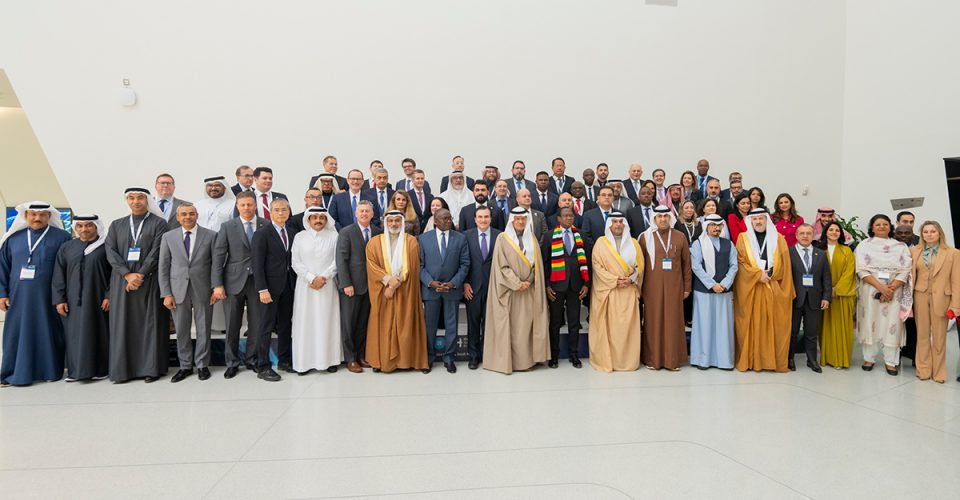Unprecedented uncertainty over the energy transition is eroding investor confidence and undermining energy security and transition goals, the Secretary General of the International Energy Forum (IEF) said today.
Speaking at a dialogue between energy producers and consumers in Riyadh, Joseph McMonigle said elevated levels of uncertainty about the future was also contributing to high prices, exacerbating the cost-of-living crisis, widening global divides, and fueling conflict.
IEF Secretary General Joseph McMonigle with Zimbabwe Minister of Finance Mthuli Ncube
The 14th Symposium on Energy Outlooks analyzed outlooks from several research groups including consumers, represented by the International Energy Agency (IEA) on the one hand, and producers from the Organization of the Petroleum Exporting Countries (OPEC) on the other. The divergence between the highest and lowest scenarios for energy demand in 2050 was greater than the size of the entire energy market today, according to the IEF Outlooks Comparison Report published Wednesday.
“This “uncertainty gap” erodes investor confidence, which in turn damages energy security and market stability,” Mr McMonigle said. “We are already seeing this in the high prices and volatility, contributing to the cost-of-living crises, widening global divisions, conflict, and geopolitical adversity.”
The divergence in outlooks is largely driven by differing views of the speed and shape of the transition of the global energy system to net-zero carbon emissions.
“While the direction of travel is clear, the speed and modalities of transitions have become more contentious. This creates new risks and uncertainties for everyone involved in the energy market, whether they be regulators, investors or advisors. There is no single linear path for energy transitions,” said Mr McMonigle, pointing to the conclusion of the IEF’s Global Energy Solutions Initiative report published in August.
That report found that transitions would be multi-dimensional, operating at different speeds, from different starting points and driven by national priorities. While energy policies in some countries revolve principally around emissions reduction, many developing countries are more concerned with securing an affordable, reliable supply of energy for their growing populations.
“At a time of increased geopolitical conflict, protectionism and nationalism, the role of the IEF has never been more relevant to bring producers and consumers together to discuss our shared interests in energy security, market stability and transparency, Mr McMonigle said.


previous post

